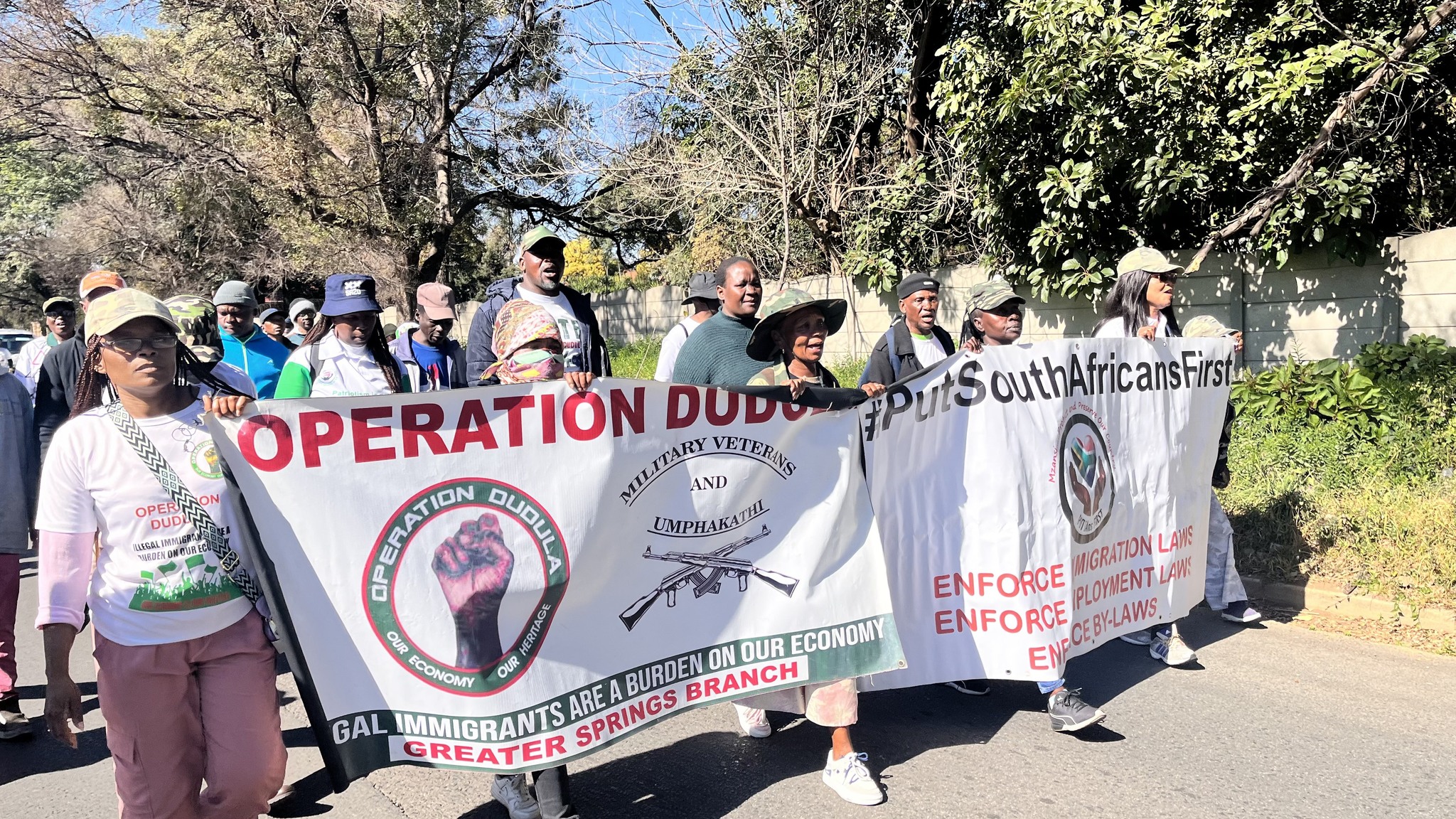In a high court case alleging State collusion with and indifference to vigilante attacks against migrants and refugees, the International Commission of Jurists (ICJ) has called for the High Court to take account of South Africa’s legal obligation to protect the human rights of non-citizens
The ICJ intervened as amicus curiae (friend of the court) in the High Court of South Africa, Gauteng Division, Johannesburg, in the matter of Kopanang Africa Against Xenophobia and Others v Operation Dudula and Others, heard on 10 and 11 June.
The ICJ’s submission focused on South Africa’s binding international legal obligations and the Constitutional requirement to protect non-citizens from discrimination, violence, and other abuse, particularly in the context of immigration enforcement.
The case revolves in significant part around the alleged failure of State authorities to prevent and address xenophobic conduct by the vigilante group ‘Operation Dudula’, which has been alleged to resort to violence in conducting unlawful forced evictions, public harassment, intimidation of traders, and denial of access to schools and hospitals for those who are or are perceived to be foreign nationals.
“This case underscores State failures to act to protect non-citizens from the unlawful conduct of vigilante groups like Operation Dudula, as they are so required under international and South African law”, said the Director of ICJ’s Africa Programme, Kaajal Ramjathan-Keogh.
In addition to the violence and discrimination, the conduct was a clear expression of xenophobia.
“Our submissions pointed to how xenophobia consists of multiple overlapping forms of discrimination and that intersectionality encompasses how equality, non-discrimination, and tolerance should underpin these state obligations”, said Ramjathan-Keough.
The case arises in part from a constitutional challenge to section 41 of the Immigration Act, which allows warrantless searches by immigration officers and, has allegedly served to enable or encourage unlawful enforcement practices by private individuals. The applicants argued that this provision facilitates discriminatory enforcement against non-nationals and is incompatible with South Africa’s Constitution and its international law obligations.
The ICJ submitted that vague criminal provisions like section 41 of the Immigration Act, are prone to enable discriminatory enforcement and legitimize vigilante actions by groups like Operation Dudula, undermining international human rights protections. These includes those under the African Charter on Human and Peoples’ Rights, the International Covenant on Civil and Political Rights (ICCPR), and the International Covenant on Economic Social and Cultural Rights (ICESCR).
In supporting these arguments, the ICJ drew attention to set of recently adopted expert standards, the 8 March Principles, which affirms that criminal laws may not directly or indirectly discriminate on the basis of national or social origin, citizenship, or immigration status. The applicants had presented extensive documentation to support this claim.
Background
The submission identified South Africa’s binding obligations under international human rights law relating to ensuring the rights to equality, non-discrimination, and protection for all individuals from violence, including non-citizens. The ICJ’s submission specifically called attention to Articles 2 and 26 of the ICCPR and Article 2 of the ICESCR, both of which require States to ensure rights are guaranteed without discrimination based, inter alia, on national or social origin.
The applicants in the case called on the state to take immediate action, including the implementation of the 2019 National Action Plan to Combat Racism, Racial Discrimination, Xenophobia and Related Intolerance, a key policy document the government has so far failed to meaningfully implement.
The applicants have sought five categories of relief:
- Interdictory and declaratory orders against Operation Dudula;
- An order compelling the government to implement the National Action Plan;
- Relief requiring SAPS to fulfill its constitutional obligations to prevent and investigate acts of xenophobic violence;
- Prohibitions against SAPS and the Department of Home Affairs from colluding with or enabling Operation Dudula; and
- A declaration that section 41 of the Immigration Act is unconstitutional.
The ICJ in its submissions also underscored the State’s failure to fully implement the National Action Plan to Combat Racism, Racial Discrimination, Xenophobia and Related Intolerance, citing in particular the observations of the UN Committee on the Elimination of Racial Discrimination, which called for South Africa to finalize its data systems, assess the plans impact, and ensure interdepartmental accountability.
The ICJ was represented by Advocates Irene Mpofu and Thabang Pooe. Webber Wentzel Attorneys represented the ICJ on a pro bono basis.
Watch
Recording of the proceedings on 10 June 2025
Recording of the proceedings on 11 June 2025
Download
Contact
Kaajal Ramjathan-Keogh, ICJ Africa Regional Programme Director, e: Kaajal.Keogh@icj.org





